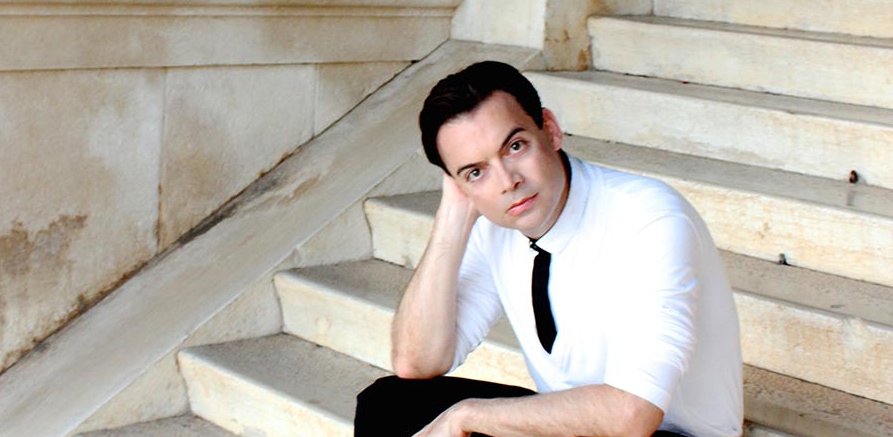Hardly a year goes by without Dejan Lazić, the world-famous Croatian-born pianist, performing in Budapest. Now he is preparing another major concert with the Budapest Festival Orchestra as part of the Bridging Europe festival.
Júlia Váradi: We've met many times and I got the impression that if you didn't have the chance to come to Hungary for a while, you would feel hungry. Am I right?
Dejan Lazić: Yes, yes, that's very accurate, and let me say, apologizing for it in advance, you must have heard this play on words many times, “I am hungry for Hungary”. For me, coming to Hungary is like coming home, and of course the BFO and Iván Fischer are the ones who are really close to me, I could call them my extended family.
J. V.: We know that you have many ties to the Hungarian music world, and perhaps that is what makes this country so welcoming for you.
D. L.: That's true, because I went from Zagreb, where I grew up, to my first musical education in Salzburg, at the Mozarteum, where Imre Rohmann was my first and most excellent teacher. And, of course, what Zoltán Kocsis taught me in Szombathely was also a decisive factor in my musical training.
J. V.: Yes, you have already told us recently how much you were influenced by the “great Hungarian musicians” of the time at the International Bartók Festival in Szombathely when you were young.
D. L.: Not only to mention Kocsis, but also Péter Eötvös, Miklós Perényi and of course György Kurtág. So, I can safely say that I grew up on Hungarian music. That is why it is always a great pleasure to return to Hungary.
J. V.: The last time you were here, you said that Liszt was one of your most important idols, who had a huge influence on your later artistic career. At the time you were playing the Piano Concerto No 1. In this concert you will play the second. How do you now think of Liszt and these two wonderful, but very different great works?
D. L.: Liszt touched the piece again and again over the course of twenty years and re-composed it. When the first version was written, Liszt was still a young man, travelling in the world and conquering it, wherever he went with his virtuoso piano playing. There was no YouTube yet, and instead he himself took the great works from one place to another. In Paris, for example, he performed Beethoven's symphonies with great success. Over the years, his attitude to his own work has changed a lot. Every time he played it in front of an audience, he felt he had to make changes. Finally, after 22 years, he saw it as the mature, definitive version. I was the same way with my own piano piece. The Piano Concerto, written when I was 24, sounded very different nine years later.
J. V.: There are so many different emotions in this Liszt work that you sometimes feel that they almost contradict each other. At some points it is extremely passionate, sometimes it seems not wanting to express emotions at all, just restrained thoughts.
D. L.: That’s exactly how I feel. Liszt not only revolutionized the way we play the piano, he was also a pioneer in finding new forms of performing. Listening to this piece, one feels as if he is switching between images, almost like a film. Creating new and new situations and feelings and turning them into collages. It all makes it seem like we are living through an accelerated series of events. Many also feel that the piece is much shorter than it actually is. It has been said that this music also has the effect of a strange piece of architecture.
J. V.: Liszt’s Piano Concerto is followed by Bartók's Miraculous Mandarin. Do you feel any connection between Liszt and Bartók?
D. L.: Of course, Bartók was greatly influenced by Liszt, as were many other musical greats. And Bartók was as much, if not more, a pioneer of music as Liszt had been. It is also because of their incredible attention and sensitivity to details. And speaking of Liszt, I think he was the one who built the bridge between Haydn and Stravinsky.

